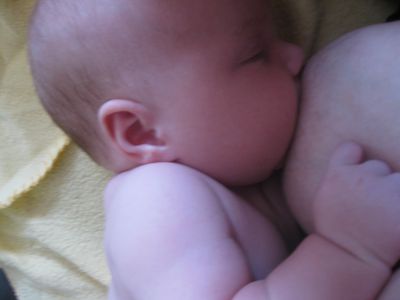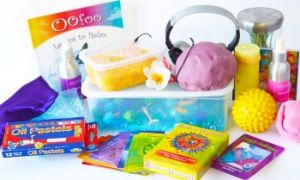Breastfeeding...what an amazing ability female bodies have to produce milk for their own baby. Breastfeeding is a natural process that develops while you are pregnant until you are ready to produce milk. Best of all it's free!!
Benefits of Breastfeeding
There are an endless amount of reasons which benefits both you and your baby during breastfeeding. Below are the most common benefits of breastfeeding:
- Breast milk is the best nutrition for your baby as it provides all the nutrients your baby needs in the first year of life. It also protects your baby from any allergies and is naturally appealing for your baby.
- Breast milk provides your baby with substances which fight infections and support the development of your baby's immune system.
- Breastfeeding protects you against ovarian cancer, breast cancer and hip fractures.
- Breastfeeding is great for you (as a mother) as it enhances your attachment to your baby. It's also known that breastfeeding helps you burn more calories and releases a hormone into your uterus to its pre-pregnancy size.
How Breast Milk Is Produced
Ever wanted to know how your breast milk is produced? Well I am going to explain it down below and it's definitely an interesting read. Besides if you decided to breastfeed you might as well know how it all works!
Inside each of your breasts there are around 20 lobes, each with its own duct system. There is one main duct which branches out into smaller ducts that end in clusters of milk-producing cells called “alveoli”. The ducts widen into tiny reservoirs that hold a small supply of milk, which produces on the nipple.
When your baby begins feeding from your breast it stimulates the nerve ending in the nipple. The nerves send messages up to the brain, telling it to release two hormones, which are called “prolactin” and “oxytocin”.
When prolactin is released it stimulates the alveoli to make more milk. Oxytocin tells the muscles around the alveoli to contract, squeezing milk into the reservoirs where your baby can get to it. The more your baby sucks, the more milk is produced.
Nutritious Breastmilk
Everything you take into your body at this stage runs through your system and into your breast milk. It is best to avoid things that aren't healthy for you and your baby.
Below is a list of tips to ensure your breast milk is nutritious for your baby.
- Cut down on caffeine (both in coffee and soft drinks).
- Eat a nutritious diet full of fruits and vegetables.
- Increase your fluid intake.
- Don't smoke (I know you heard it thousands of times already).
- Reduce alcohol intake to ONLY OCCASIONAL or ELIMINATE it completely. It's been recommended that you discard your breastmilk (by expressing), after having a drink.
- Certain foods you may be in-taking could affect your baby's digestion. Pay attention and eliminate it if necessary.
- Always talk to your doctor before taking any medications while breastfeeding.
Caring for your Breasts
To help care for your breasts while breastfeeding, here are a few tips you can do.
- Avoid placing pressure on your breasts: Sleeping in a face down position may squeeze your breasts and block milk ducts. It is recommended not to not to wear under wire bras and avoid wearing bras that are too tight and tops that have a tight fitting over your breasts.
- Bra support - It's vital to wear a supportive bra. This can be a regular bra that you take off when you breastfeed or a nursing bra with breast flaps (this is recommended as it is versatile and convenient to use). Cotton bras are best as they will not trap moisture that could irritate your nipples. Try not to wear under wire bras. Your milk ducts extend up towards your armpits and under wire bras can squeeze your breasts and pinch on milk ducts which can cause plugged ducts or a breast infection. Make sure your bra fits correctly and does not squeeze your breasts.
- Cleaning your breasts - It's important to wash your breasts with warm water once each day. Try not to use soap or bathing/shower gels as these can irritate your nipples. You need to have clean hands when touching your breasts to help prevent getting infections. Make sure you always wash your hands thoroughly for 15 seconds before breastfeeding, expressing, or pumping. Then dry your hands completely, also always use a clean paper towel after every washing.
- Keep your nipples dry - It's best to wear fabric breast pads inside your bra which will let the air inside. Change breast pads often to prevent irritation. If nipples are damaged, nursing pads may stick to your nipple. Soak the pads in warm water to help remove them.
- Nipple conditioning - Let your nipples air dry after breastfeeding. Use breast milk or nipple ointment on your nipples if needed to keep them from getting chapped and dried out. Talk to your pharmacist about the different ointments you can use to offer you some relief.
Breastfeeding Tips
After the delivery of your baby, the nurses will give you the techniques on how to breast feed your baby. So don't worry if at this stage you have got no clue on what to do.
However, below I will provide you with some practical strategies to make sure that you are doing all you can to make breastfeeding a success. Keep these points in mind in order to make it more comfortable for both you and your baby.
- Feed your baby as soon as possible after birth.
- Learn how to attach your baby to your breast, properly.
- Do not give any bottles in the first four weeks.
- Feed on demand both day and night.
- Choose a chair that support and helps you to relax. Add extra pillows for comfort.
- Try a number of breastfeeding positions to find one that best suits you (don't worry the nurse will provide you with this information).
- Change breasts in the middle of each feeding.
- Be patient.
If you have any questions or concerns regarding breastfeeding, it's advisable to talk to your doctor about it.
It is important that while breastfeeding your baby is attached properly to your breast. By getting this right at the beginning, it will avoid all sorts of feeding difficulties. While holding your baby during feeding, make sure your baby's body is in a straight line. Your baby's mouth should be wide open with their chin up and pressed into your breast. Your baby should begin to feed immediately, switching to long deep sucking sounds after a couple of seconds. It's vital to make sure that your baby's nose is away from your breast, so that their breathing is not obstructed during the feed.
Breastfeeding Your Baby
While breastfeeding your baby it's hard to determine how much is enough and how often you should be breastfeeding. Don't worry this is a common concern for all new mothers.
Below are some tips to ensure that your baby is getting enough milk and how often you should be nursing.
Feeding on Demand – Feed your baby whenever they are hungry. This is usually once every two to three hours in the beginning stages of your baby's life. As your baby grows and develops, the time between feeding usually lengthens. It is recommended to do a minimum of eight feeding in a twenty-four hour period.
Baby's Weight – While breastfeeding it is difficult to determine how much milk your baby is getting. It's advised to check your baby's weight from time to time. After birth it is known for your baby to lose some weight, however they will gain the weight back in the first couple of weeks. In the first four months your baby should double their birth weight and by one year it should be triple.
Dirty / Wet Nappies – To confirm if your baby is getting enough milk it's important to check their nappies. Your baby should at least be having around eight to twelve wet nappies a day and a few dirty nappies each day.
Breastfeeding Problems for Your Baby
At times your baby may occasionally refuse to feed from your breast. Try not to worry, as this is fairly common amongst new babies and most likely the problem can be fixed.
Below are some basic tips to possible causes, when your baby refuses to feed:
Positioning – Try re-positioning your baby as they may not feel comfortable in their current position.
Appetite – Your baby may not feel hungry, even though it may be feeding time.
Tummy ache – Wind (or colic) may be causing some pain to your baby. If you do suspect of your baby having wind there are a few things you can do to comfort your baby:
- Lay your baby across your knees and gently pat their back.
- Walk around holding your baby, while patting their back.
- Massage your baby's tummy in a circular pattern.
- Lay your baby on their back and press their knees into their chest to help expel wind.
Obstructed breathing – Check your baby's airway and make sure their breathing is not obstructed by your breast or anything else.
Tension – Your baby can sense your tension or discomfort. It's important to relax during breastfeeding.
Inverted nipples – If you have inverted nipples your baby may not be able to latch on. If this is the case, pull your nipples out and gently roll them between your fingers. After a few days and your baby begins to latch on your nipples will automatically reverse so you won't have inverted nipples anymore. It's is recommended to talk to your doctor about your options while breastfeeding your baby.
Breastfeeding Problems for You
Generally in the beginning and during breastfeeding, it is common to encounter some problems such as sore nipples, swollen breasts and possibly a biting baby which can cause pain and discomfort to you.
Below are some tips that will benefit you when breastfeeding becomes a problem:
Sore Nipples - It is quite common to have sore nipples while breastfeeding. There are a number of things you can try to help relief the pain and discomfort. T These include:
- Making sure your baby is latched on properly and taking in the whole nipple and not just the tip. Wait until your baby's mouth is wide open before inserting your breast.
- Air dry your nipple frequently to maintain healthy skin.
- If you have developed a cracked nipple, nurse from the other side in order for the other one to heal.
- Use nipple cream (available at your local pharmacy) to ease the soreness.
Swollen Breasts - When you begin producing milk, it is common that your breasts will begin to feel hard, painful and swollen. To help ease the pain:
- Take a shower which may help exert some milk.
- Use a good breastfeeding bra in order to get full support.
- Apply a warm washcloth on your breasts to help relieve pain and release milk.
- Feeding your baby is the easiest way to get milk out of your body.
- Express milk from your breasts using your hands or a breast pump.
- Breast pads are also recommend to absorb milk that leaks from your breasts. It's important to change them frequently to avoid infection.
Biting Baby - During the beginning it is common for your baby to bite down on your breast while feeding. Here are some ways to deal with it when this happens:
- When your baby is breastfeeding and begins to bite you, pull back quickly and say “No” or “Ouch”. Tell your baby that biting hurts you and then continue nursing.
- If your baby bites again, remove your breast and say firmly “No!”.
- Stop the feeding if your baby continues to bite. Interact and entertain your baby for awhile before feeding again.
It's important to remember not to take the biting personally. It is highly likely your baby is just experimenting and is curious about your reaction. Your baby will eventually learn that biting reduces the flow of food and eventually stop.
Breastfeeding plays a great benefit to both you and your baby both physically and emotionally. It provides you with a special bond that you and your baby will share throughout your baby's first year of life and even beyond.










